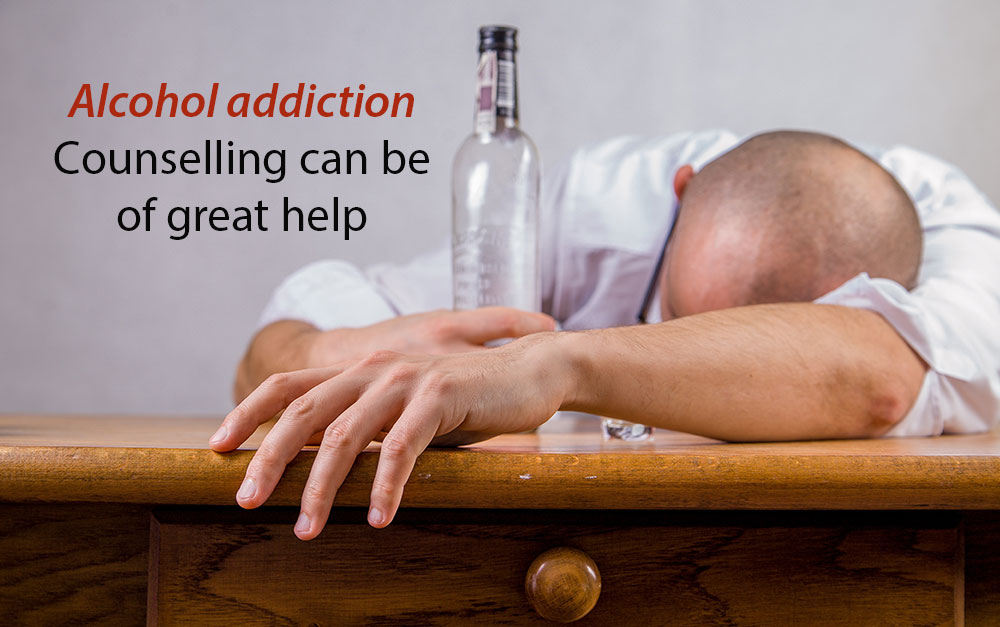Alcohol abuse contributes to illness and premature deaths in a big way. It is also associated with several socio-economic consequences such loss of earnings and domestic violence.
Over the years, several measures have been launched to overcome the problem including imposition of ban on alcohol sale and setting up of de-addiction centres to help the drinkers.
A group of researchers drawn from several national and international institutions have now found that it is possible to address the issue in a significantly effective manner at low costs. They have found that lot of benefit can be derived by merely equipping public health workers with different counselling techniques.
The study was conducted at 10 public primary healthcare centres in Goa. A total of 377 heavy drinkers in the age group of 18 to 65 years were enrolled. They were randomized into two groups- one receiving just the routine care and the other who also received counselling for two months. Their alcohol use was measured after 12 months.
In the group that received counseling, as much as 68 per cent of the men were found to have reduced their consumption to the safe level, as against 40 per cent in the case of the group that received only the routine care. The counselling programme was also not too intense. It consisted of just one to three sessions.
The counselors were also just non-specialist health workers. They had no prior professional training or qualification in the field of mental health. However, they were given rigorous training on various aspects of counselling and they gave advice on how to deal with craving and motivated patients to quit drinking.
Speaking to India Science Wire, Vikram Patel, professor at the Department of Global Health and Social Medicine of the Harvard Medical School, Boston, Massachusetts in USA, who was the corresponding author for the study, said, “Given the great social and health harms associated with heavy drinking in India, and the effectiveness of this relatively brief and cheap treatment to reduce drinking levels,the government needs to scale up this treatment by training primary care health workers across the country”.
Besides Dr. Patel, the study team included Abhijit Nadkarni, Helen A Weiss, Benedict Weobong, David McDaid, Daisy R Singla, A-La Park, Bhargav Bhat, Basavaraj Katti, Jim McCambridge, Pratima Murthy, Michael King, G Terence Wilson, Betty Kirkwood, Christopher G Fairburn, and Richard Velleman.
National Institute of Mental Health and Neurosciences (NIMHANS) in Bengaluru and Sangath, a NGO in Goa participated in the study. They collaborated with the London School of Hygiene and Tropical Medicine, University of Oxford, University of Bath, University of York, University College London and London School of Economics and Political Science in United Kingdom, University of Toronto in Canada, Rutgers University in New Jersey, and Harvard Medical School in United States of America. The Indian Council of Medical Research gave the ethical approval for conducting the trial.
(Article shared from India Science Wire)
Want to write for InnoHEALTH? send us your article at magazine@innovatiocuris.com
Read all the issues of InnoHEALTH magazine:
InnoHEALTH Volume 1 Issue 1 (July to September 2016) – https://goo.gl/iWAwN2
InnoHEALTH Volume 1 Issue 2 (October to December 2016) – https://goo.gl/4GGMJz
InnoHEALTH Volume 2 Issue 1 (January to March 2017) – https://goo.gl/DEyKnw
InnoHEALTH Volume 2 Issue 2 (April to June 2017) – https://goo.gl/Nv3eev
InnoHEALTH Volume 2 Issue 3 (July to September 2017) – https://goo.gl/MCVjd6
InnoHEALTH Volume 2 Issue 4 (October to December 2017) – http://amzn.to/2B2UMLw
InnoHEALTH Volume 3 Issue 1 (January to March 2018) – https://goo.gl/fksdQx
Connect with InnovatioCuris on:
Facebook: https://www.facebook.com/innovatiocuris
Twitter: https://twitter.com/innovatiocuris
LinkedIn: https://www.linkedin.com/groups/7043791
Stay updated about IC, visit: www.innovatiocuris.com

